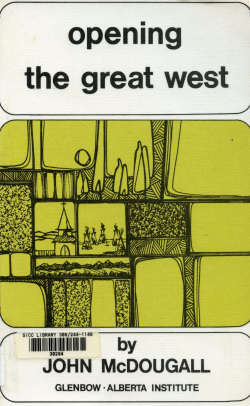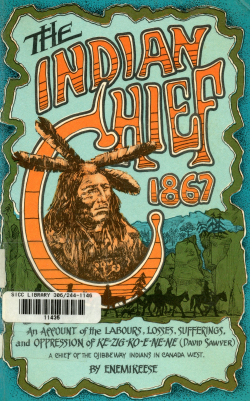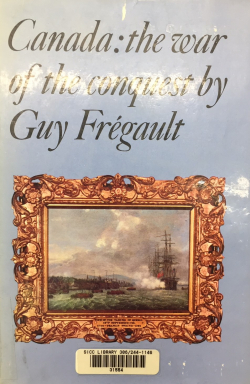Twenty-seven years in Canada West ; or, The experience of an early settler

Type
Book
Authors
Samuel Strickland ( Strickland, Samuel )
Agnes Strickland ( Strickland, Agnes )
ISBN 10
088830028X
ISBN 13
9780888300287
Category
General Library Collection
[ Browse Items ]
Publication Year
1970
Publisher
Pages
344
Subject
Frontier and pioneer life -- Ontario
Tags
Abstract
"The "Canada West" of Samuel Strickland's colonial experience extended from the bush country just east of Toronto to the Huron Tract in southwestern Ontario. Typical of many scions of genteel but no longer wealthy in British families, Samuel came to Canada in 1825 hoping to establish himself in a new, open society. Although status and comfort were to be his in years to come, it was his earliest experiences as a gentleman pioneer in a thoroughly uncivilized wilderness that provided the background for his narrative, Twenty-Seven Years in Canada West (1853), and brought him lasting fame.
Surrounded in England by five literary sisters, companion in Canada to "Tiger" Dunlop, a superb raconteur, it was inevitable that Strickland should finally set his experiences in the bush down on paper. From Dunlop, to whom he was a kind of Boswell during their three years together in the Huron Tract, he gained some facility in storytelling and a little wit; in the two sisters who followed him to Canada and wrote their own emigrant books he had models of creative industry. But if Samuel responded to their examples, in literary terms he resisted both influences. The anecdotal quality of Twenty-Seven Years in Canada West is its strength, yet it contains not a trace of Dunlop's coarseness. Strickland assumed a definitely masculine attitude toward his life in the bush, in contrast to his sisters' warnings of frustration and hardship. With no pretensions to their charming and romantic styles, he wrote, as Carl F. Klinck notes in his introduction, as "a plain, practical man" of "a man's world where nerves and muscles could be trained and where there were special rewards for those who came with education and social position."
A patriarchal figure in the latter days of colonialism in Canada, Strickland opened an agricultural school for young English gentlemen as an extension of the practical philosophies expressed in his book. Klinck observes, however, that the man himself was the best example of his message:
His character, style, and good humour epitomize that message: a gentleman could succeed in Canada, and Canada could make him her own kind of gentleman."--Book jacket.
Surrounded in England by five literary sisters, companion in Canada to "Tiger" Dunlop, a superb raconteur, it was inevitable that Strickland should finally set his experiences in the bush down on paper. From Dunlop, to whom he was a kind of Boswell during their three years together in the Huron Tract, he gained some facility in storytelling and a little wit; in the two sisters who followed him to Canada and wrote their own emigrant books he had models of creative industry. But if Samuel responded to their examples, in literary terms he resisted both influences. The anecdotal quality of Twenty-Seven Years in Canada West is its strength, yet it contains not a trace of Dunlop's coarseness. Strickland assumed a definitely masculine attitude toward his life in the bush, in contrast to his sisters' warnings of frustration and hardship. With no pretensions to their charming and romantic styles, he wrote, as Carl F. Klinck notes in his introduction, as "a plain, practical man" of "a man's world where nerves and muscles could be trained and where there were special rewards for those who came with education and social position."
A patriarchal figure in the latter days of colonialism in Canada, Strickland opened an agricultural school for young English gentlemen as an extension of the practical philosophies expressed in his book. Klinck observes, however, that the man himself was the best example of his message:
His character, style, and good humour epitomize that message: a gentleman could succeed in Canada, and Canada could make him her own kind of gentleman."--Book jacket.
Number of Copies
1
| Library | Accession No | Call No | Copy No | Edition | Location | Availability |
|---|---|---|---|---|---|---|
| Main | 14120 | 1 | Yes |




